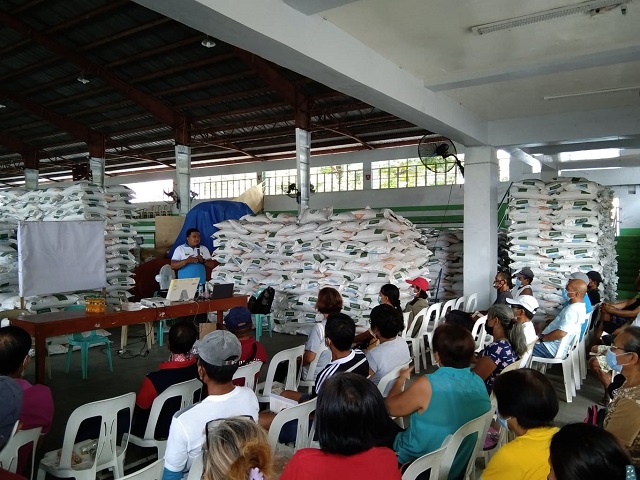
Grab Photo from PhilRice
More farmers and extension intermediaries are improving their rice farming knowledge and skills through the Rice Competitiveness Enhancement Fund-Rice Extension Services Program (RCEF-RESP).
Dr. Karen Eloisa T. Barroga, DA-Philippine Rice Research Institute (PhilRice) Deputy Executive Director for development and RCEF-RESP Vice-Chairperson, reported reaching some 8M stakeholders in 2021 through PhilRice’s training, communication support services, as well as knowledge sharing and learning activities. This was presented during the recent DA-PhilRice RCEF Seeds and Extension annual review and workshop.
She also shared that the Institute has so far graduated 261 rice specialists distributed in all regions except in the Bangsamoro Autonomous Region in Muslim Mindanao where training will begin this year. These rice specialists underwent a season-long blended course in science-based rice production to ensure they become farmers’ trusted source of rice information and technologies in their areas.
In addition, PhilRice has graduated 1442 farmers, under its RCEF-Farmer Field School (FFS) and short course on pest and nutrient management, and 1061 rice trainers. PhilRice works with the Agricultural Training Institute (ATI), Philippine Center for Postharvest Development and Mechanization (PHilMech), and the Technical Education and Skills Development Authority (TESDA) in implementing the RCEF-RESP.
Myraly Marcos, a graduate of RSTC batch 2, said that she has helped conduct 17 batches of RCEF-Farmer Field School with 175 farmer-participants after her training at PhilRice.
“I became more motivated to help farmers become better and productive. I have learned to listen well to farmers, observe their practices, allow them to share, and guide them in improving their practices. It is fulfilling, especially when you see them applying what they have learned from the training,” the rice specialist from Cagayan State University-Gonzaga Campus said.
Farmer Luis Gapasangra shared that he was able to reduce fertilizer cost through the training he attended.
“Fertilizer expenses in my 1-ha ricefield is reduced by P1,800; thanks to the RCEF training I attended where I learned about the Minus-one Element Technique. Before, we just broadcast fertilizers as long as we had the means to buy it. It’s like throwing money and it shouldn’t be that way,” the farmer from Mauban, Quezon said.
Aside from training activities, PhilRice develops and distributes information, education, and communication materials and conducts webinars and technical briefings using online, mediated, and face-to-face platforms to reach more farmers and extension intermediaries.
“The information materials are a big help as they contain everything we need to know from planting to harvesting. We are guided on rice farming through these materials,” Emma Lesaso of Zamboanga del Sur said.
The RCEF-RESP is a component of Republic Act 11203 or Rice Tariffication Law authored by Sen Cynthia A. Villar. The RTL allocates P1 billion every year to enhance the capacities of rice farmers to become competitive in rice production. For more information about the program, queries can be sent thru DA-ATI (0920 946 2474). (Reuel Maramara, PhilRice News)
